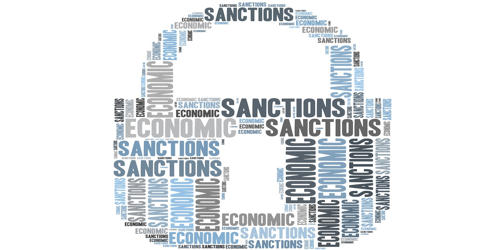Economic sanctions are defined as the withdrawal of customary trade and financial relations for foreign- and security policy purposes. Economic sanctions are commercial and financial penalties applied by one or more countries against a targeted self-governing state, group, or individual. These sanctions are not necessarily imposed because of economic circumstances—they may also be imposed for a variety of political, military, and social issues. Economic sanctions can be used for achieving domestic and international purposes. Sanctions have been used to advance a range of foreign policy goals, including counterterrorism, counternarcotics, nonproliferation, democracy and human rights promotion, conflict resolution, and cybersecurity. It is an instrument of foreign policy and economic pressure that can be described as a sort of carrot-and-stick approach to dealing with international trade and politics.
Economic sanctions generally aim to create good relationships between the country enforcing the sanctions and the receiver of said sanctions. These sanctions are increasingly being used to promote the full range of American foreign policy objectives. Sanctions take a variety of forms, including travel bans, asset freezes, arms embargoes, capital restraints, foreign aid reductions, and trade restrictions. It does not cost a life outside the nation boycotted, but it brings pressure upon the nation which, in my judgment, no modern nation could resist. However, the efficacy of sanctions is debatable and sanctions can have unintended consequences.
Economic sanctions involve the politically motivated withdrawal of customary trade or financial relations from a state, organization, or individual. These sanctions may include various forms of trade barriers, tariffs, and restrictions on financial transactions. Unilateral sanctions are rarely effective. In a global economy, unilateral sanctions tend to impose greater costs on They may be imposed by the United Nations, regional governmental organizations such as the European Union, or by states acting alone. American firms than on the target, which can usually find substitute sources of supply and financing. An embargo is similar but usually implies a more severe sanction, often with a direct no-fly zone or naval blockade.
In sum, a rapidly changing global economy means that unilateral economic sanctions are decreasingly useful yet increasingly costly. In recent years, the United States has expanded the use of sanctions, applying them and ramping them up against adversaries in Iran, Russia, Syria, and Venezuela. If sanctions are to have any chance at all of producing favorable outcomes, they must be multilateral, they must be carefully formulated, and they must be vigorously enforced.
















